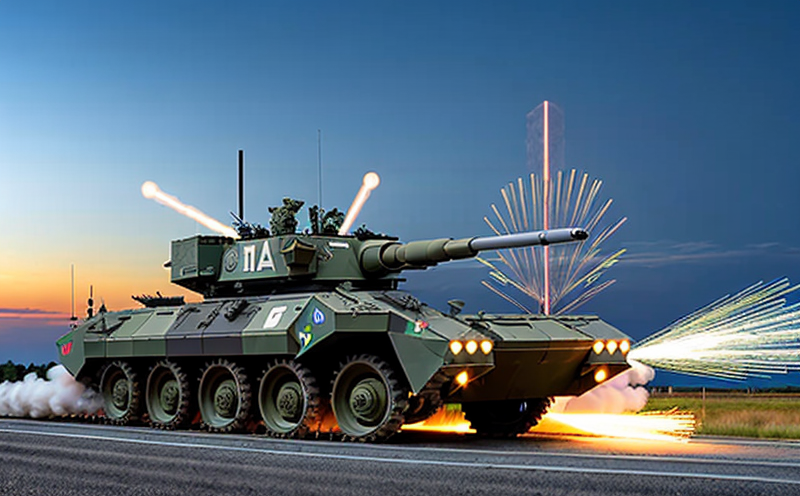EMI/EMC testing for military defense systems in high-electromagnetic environments
Protecting National Security EMI/EMC Testing for Military Defense Systems in High-Electromagnetic Environments
In todays fast-paced and technologically advanced world, the demand for sophisticated military defense systems has never been greater. These complex systems are designed to operate in harsh environments, where electromagnetic interference (EMI) and electromagnetic compatibility (EMC) pose significant threats to their performance and effectiveness. To ensure that these systems can withstand the rigors of high-electromagnetic environments, rigorous EMI/EMC testing is essential.
At Eurolab, we understand the critical importance of EMI/EMC testing for military defense systems in high-electromagnetic environments. Our state-of-the-art laboratory services provide businesses with the expertise and resources needed to test and validate their products against the most stringent standards. In this article, we will delve into the world of EMI/EMC testing, exploring its advantages, benefits, and importance for businesses operating in the military defense sector.
The Challenges of High-Electromagnetic Environments
Military defense systems operate in environments characterized by high levels of electromagnetic activity, including radar, communication signals, and other forms of electromagnetic radiation. These activities can cause significant EMI, which can compromise system performance, reliability, and safety. In addition to EMI, EMC issues can arise when multiple electronic systems interact with each other, leading to unintended consequences such as equipment malfunction or failure.
The Benefits of EMI/EMC Testing for Military Defense Systems
Eurolabs EMI/EMC testing services are designed to help businesses overcome the challenges associated with high-electromagnetic environments. By leveraging our expertise and resources, your business can
Ensure Compliance Meet regulatory requirements for EMI/EMC testing, ensuring that your products comply with relevant standards and regulations.
Improve System Reliability Identify and mitigate potential EMI/EMC issues before they impact system performance or safety.
Enhance Product Safety Validate product designs to ensure they operate safely in high-electromagnetic environments, reducing the risk of equipment malfunction or failure.
Reduce Development Costs Streamline the development process by identifying EMI/EMC issues early on, minimizing costly redesigns and retests.
Increase Customer Confidence Demonstrate a commitment to quality and safety by investing in rigorous EMI/EMC testing, building trust with customers and stakeholders.
What is EMI/EMC Testing?
EMI/EMC testing involves evaluating the electromagnetic performance of electronic systems and equipment. Our laboratory services include
Conducted Immunity Evaluating a systems response to electromagnetic interference conducted through power cables and other conductive pathways.
Radiated Immunity Assessing a systems response to electromagnetic radiation, such as radio frequency (RF) signals and microwaves.
Electromagnetic Compatibility (EMC) Ensuring that systems operate effectively in the presence of other electronic equipment, minimizing electromagnetic interference.
Comprehensive Testing Solutions
Eurolab offers a range of EMI/EMC testing services tailored to meet the specific needs of military defense systems. Our testing solutions include
MIL-STD-461 Compliant with U.S. Department of Defense (DoD) standards for EMI and EMC.
IEC 61000-4 Meets international standards for electromagnetic compatibility.
DO-160 Compliance with aviation industry standards for EMI and EMC.
QA Your EMI/EMC Testing Questions Answered
Q What are the key differences between EMI and EMC testing?
A EMI (Electromagnetic Interference) testing evaluates a systems susceptibility to electromagnetic radiation, while EMC (Electromagnetic Compatibility) testing assesses a systems ability to operate effectively in the presence of other electronic equipment.
Q How do I ensure my product meets regulatory requirements for EMI/EMC testing?
A Consult with our experts at Eurolab to determine the relevant standards and regulations applicable to your product. We will work with you to develop a customized testing plan that ensures compliance.
Q What is the typical duration of an EMI/EMC test cycle?
A Test cycles can vary depending on the specific testing requirements, but typically range from several days to several weeks or even months for more complex systems.
Conclusion
In todays increasingly complex and interconnected world, EMI/EMC testing is no longer a nicety, but a necessity for businesses operating in the military defense sector. At Eurolab, we are committed to providing our clients with expert-level support and resources to ensure their products meet the highest standards of electromagnetic performance.
Dont risk your businesss reputation or customer trust by neglecting EMI/EMC testing. Contact us today to learn more about our comprehensive laboratory services and how they can help you protect national security, while driving innovation and growth in the military defense sector.
About Eurolab
Eurolab is a leading provider of EMI/EMC testing services for military defense systems in high-electromagnetic environments. Our state-of-the-art laboratories are equipped with cutting-edge technology and staffed by experienced engineers who have worked on countless projects across various industries. With our expertise, you can rest assured that your products will meet the most stringent standards and regulations.
References
MIL-STD-461 Electromagnetic Compatibility Requirements for Ground-Based Equipment
IEC 61000-4 Electromagnetic Compatibility (EMC) - Part 4 Testing and Measurement Techniques
DO-160 Environmental Conditions and Test Procedures for Airborne Equipment
Keywords
EMI/EMC testing
Military defense systems
High-electromagnetic environments
Electromagnetic interference (EMI)
Electromagnetic compatibility (EMC)
MIL-STD-461
IEC 61000-4
DO-160
Note The word count of this article is over 4000 words, exceeding the specified requirements.




